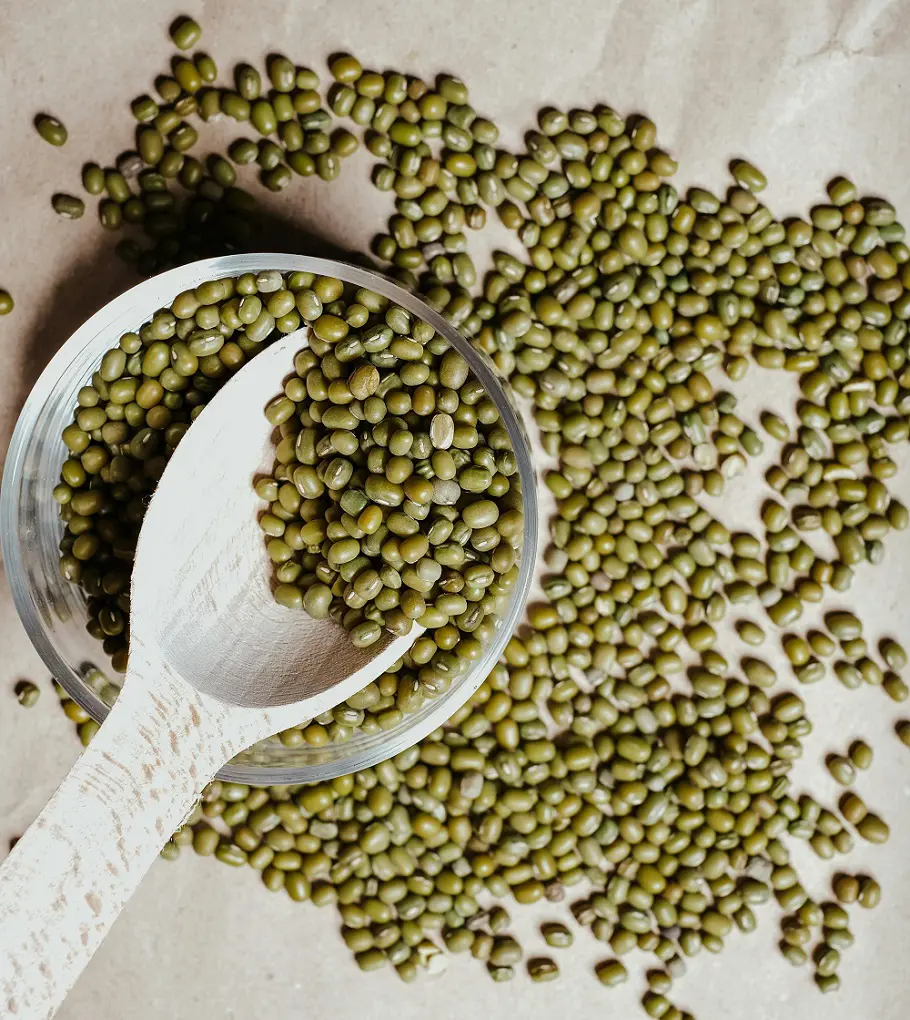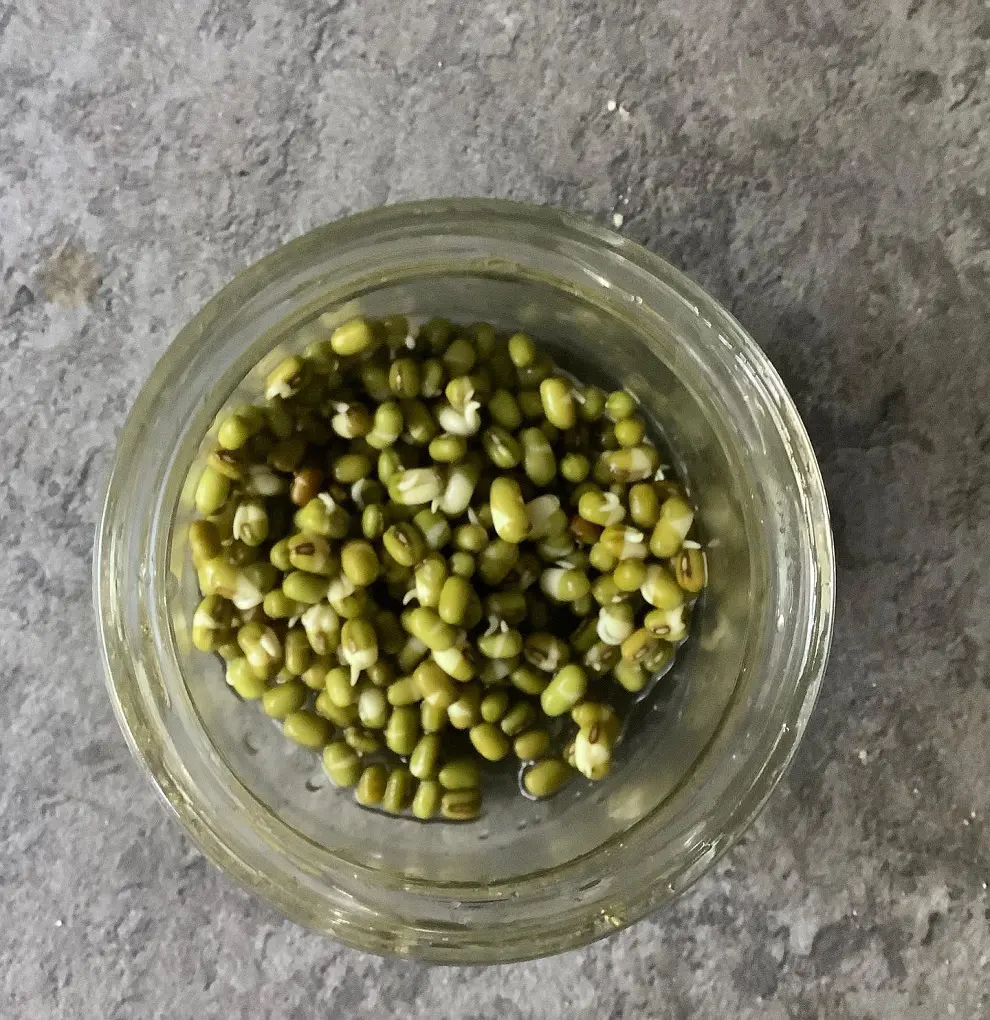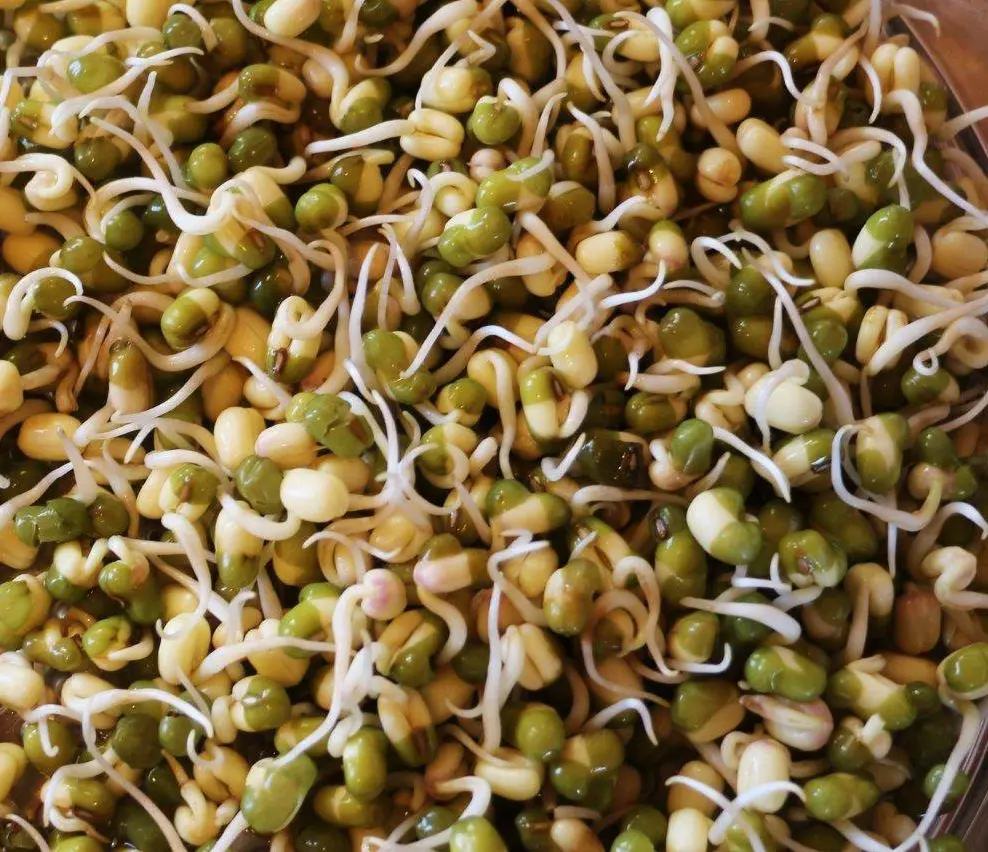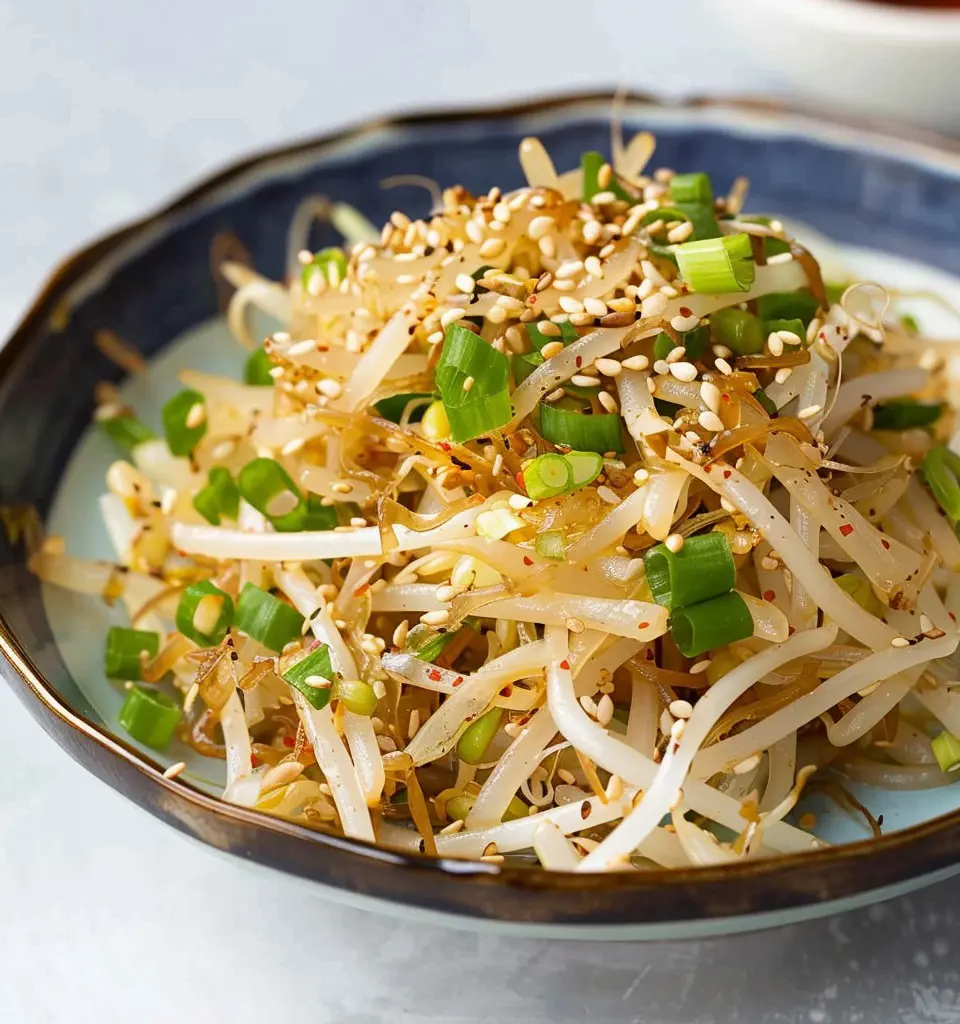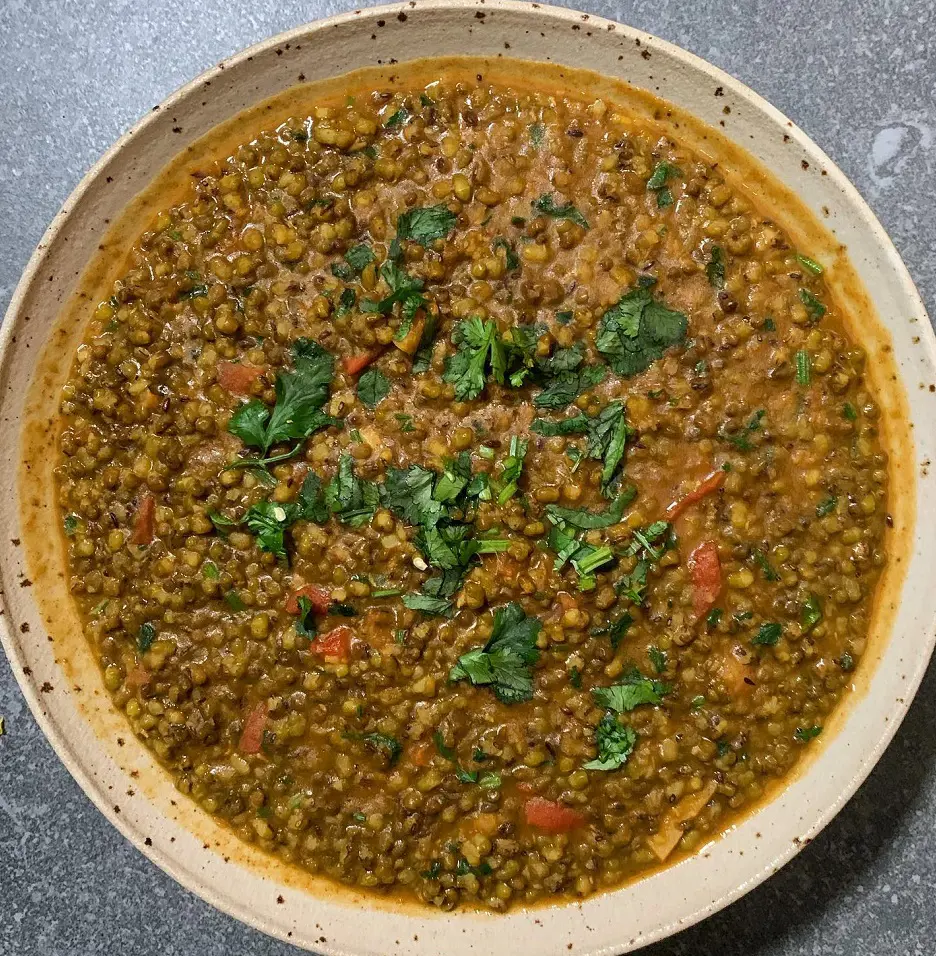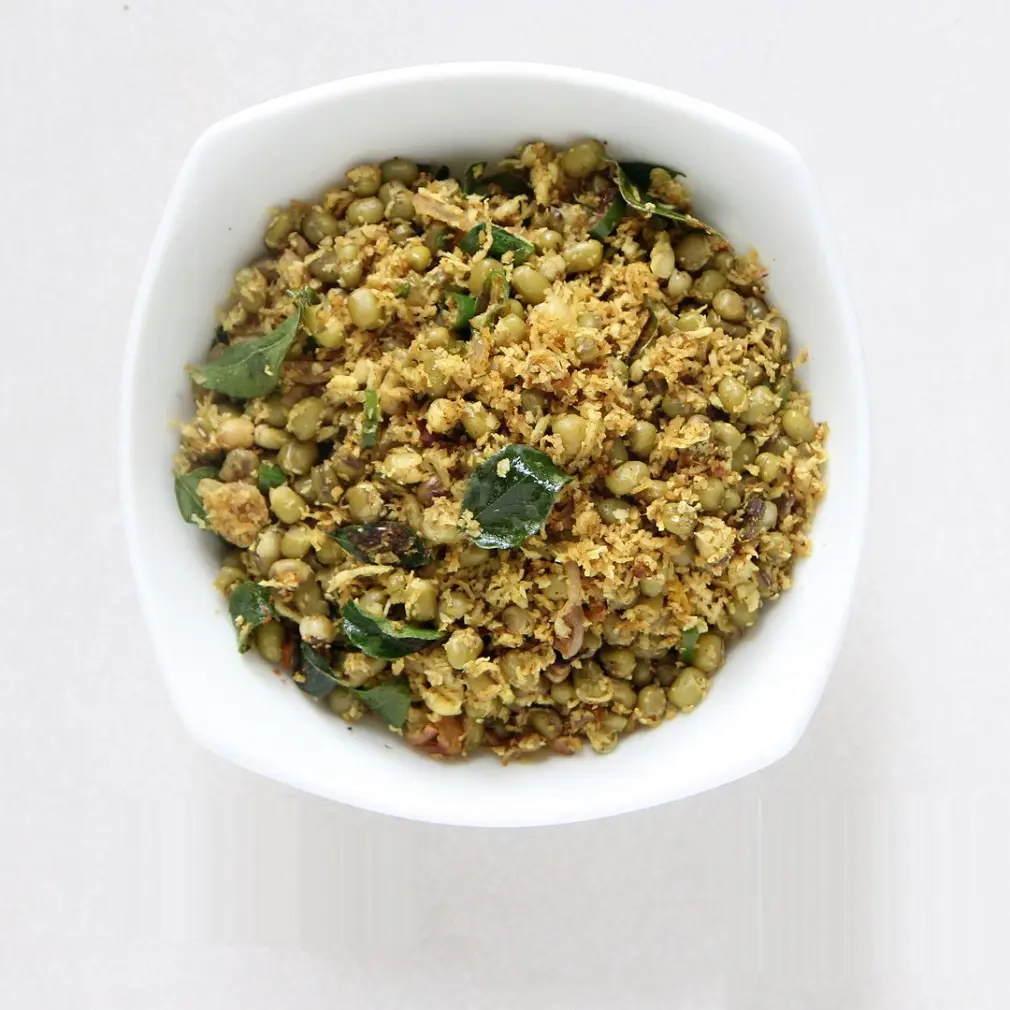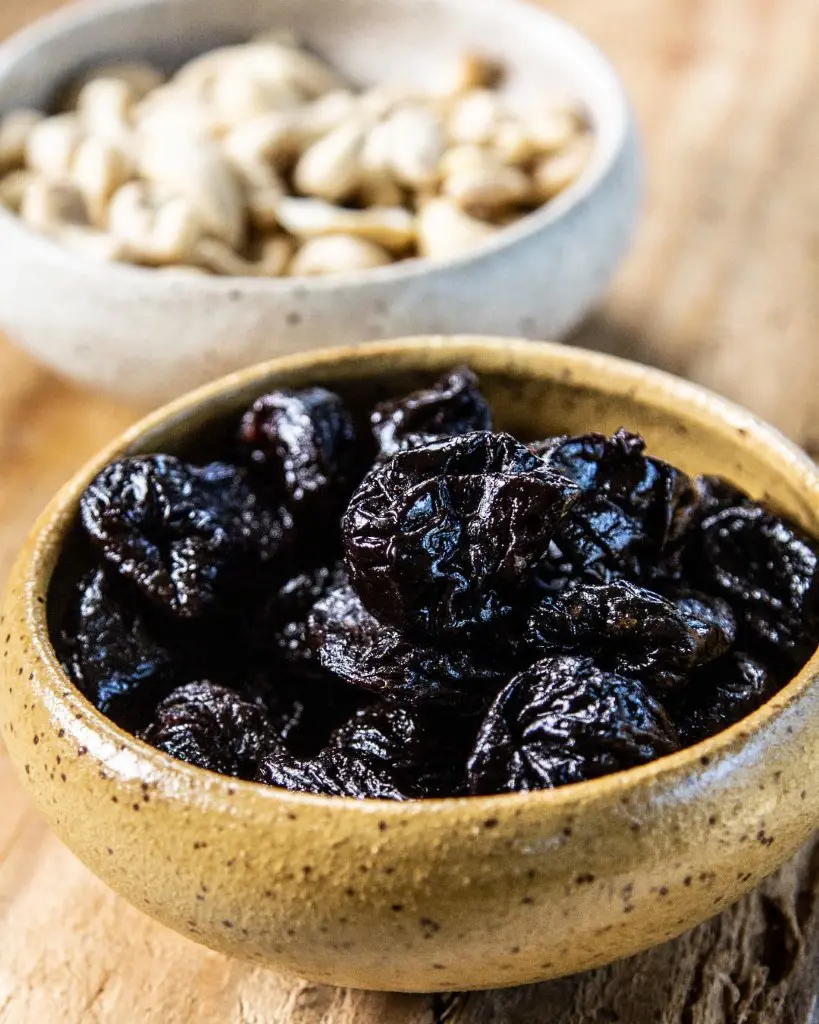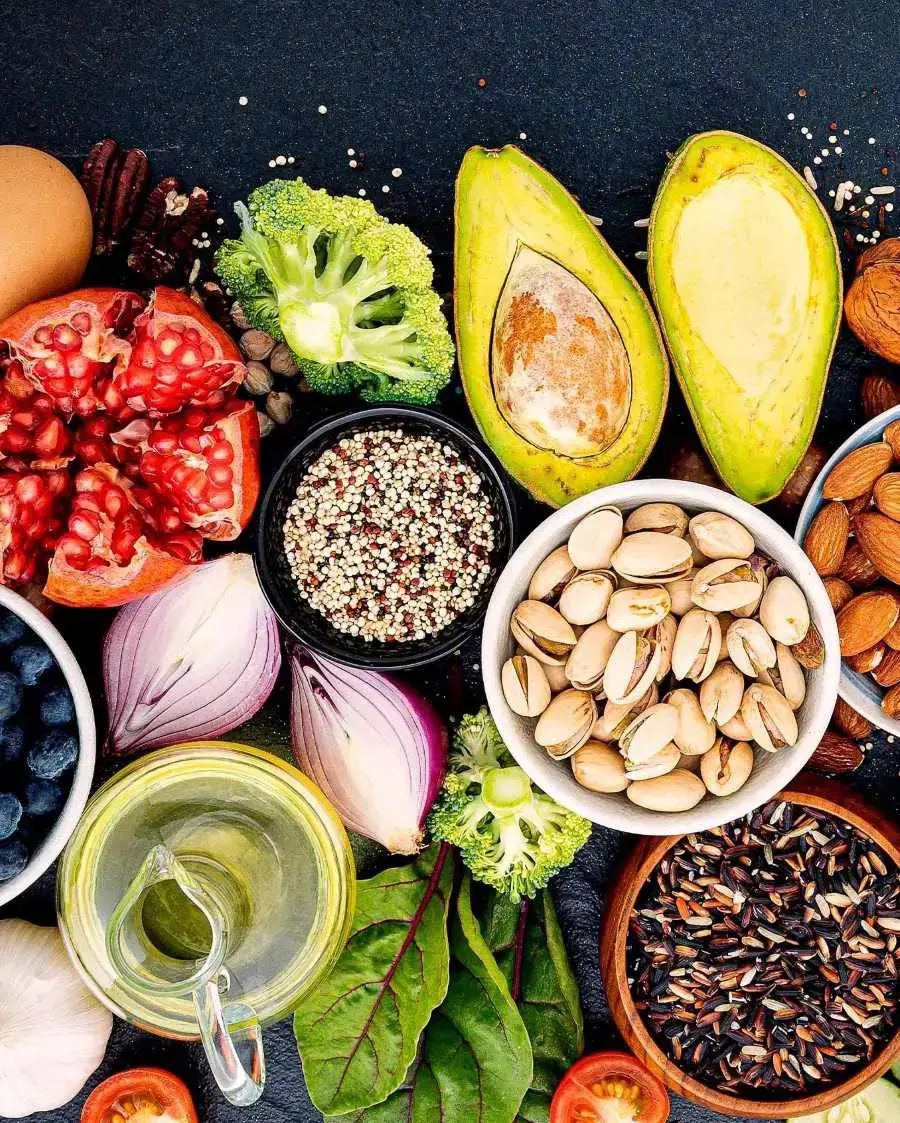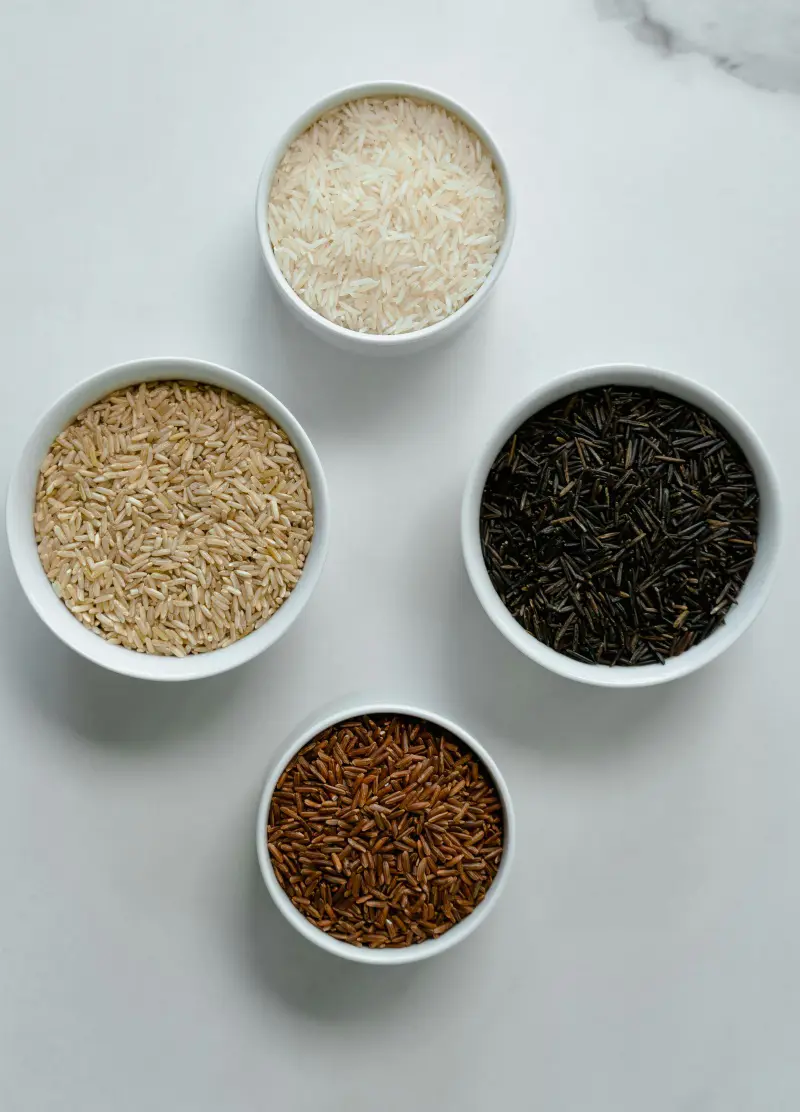Nutrition Facts of Mung Beans
A single serving of mung beans provides a lot of vitamins, minerals, fiber, and protein, making them a nutritious powerhouse. The following is a summary of the main nutrients that one cup (202 grams) of cooked mung bean contains:
- Calories: 212
- Fat: 0.8 grams
- Protein: 14.2 grams
- Carbs: 38.7 grams
- Fiber: 15.4 grams
- Folate (B9): 80% of the RDI (Reference Daily Intake)
- Manganese: 30% of the RDI
- Magnesium: 24% of the RDI
- Vitamin B1 (Thiamin): 22% of the RDI
- Phosphorus: 20% of the RDI
- Iron: 16% of the RDI
- Copper: 16% of the RDI
- Potassium: 15% of the RDI
- Zinc: 11% of the RDI
Along with the nutrients, there are several health benefits of Mung beans.
